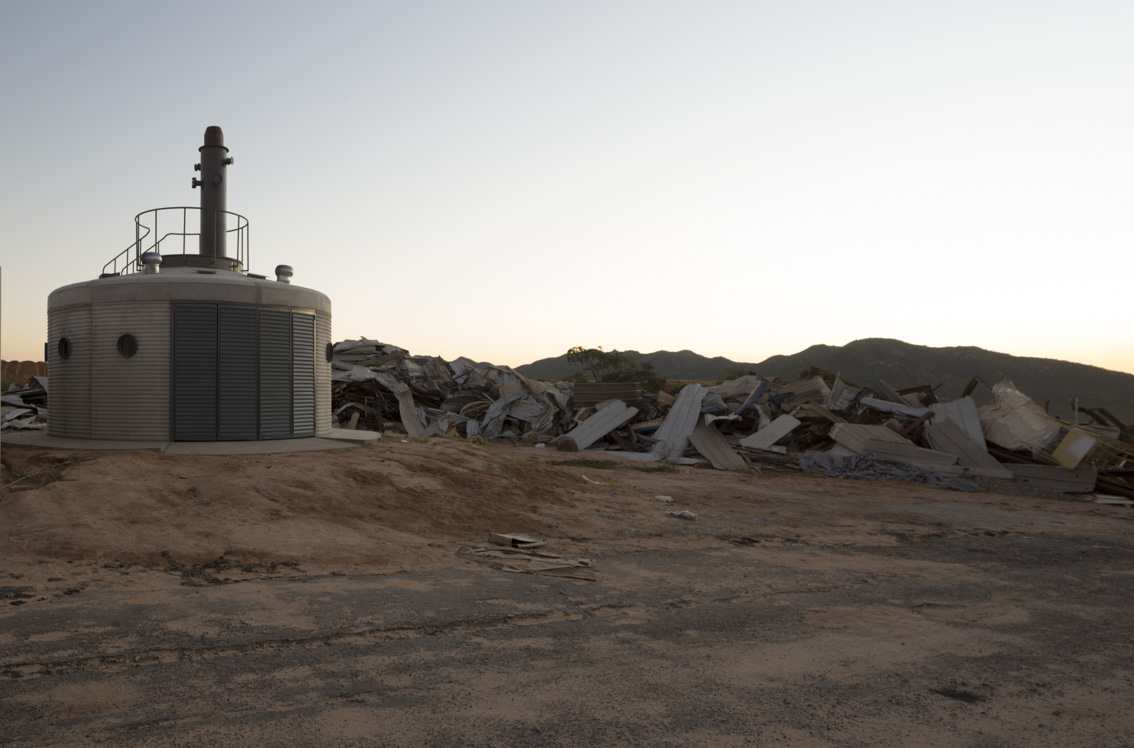
With one of the highest levels of income inequality among the world’s developed nations and a 1% that owns almost half of the national wealth, Mexico is a country with no shortage of injustice.
It is also the country that produced Rozana Montiel, an internationally recognised architect and designer whose socially conscious work from low-cost social housing to community playgrounds and solid waste incinerators saw her win the 2019 Global Award for Sustainable Architecture.
Born in 1972 in Mexico City, Montiel studied architecture and urban design at the Ibero-American University and architectural theory at the Polytechnic University of Catalonia, before later founding her own studio – Estudio de Arquitectura.
At the centre of her design philosophy is understanding the effect her architecture has on people: “To me design is about placemaking, designing as a process not solely as a final product. I pay special attention to people and detail,” she said in an interview with Whytt Magazine.
Over the years her interdisciplinary team of architects and designers have produced a string of impressive community projects and urban interventions, mostly aimed at transforming the disused, dead spaces found throughout cities and towns – often at very little cost, and with maximum input from the communities themselves.
Last year, for example, her studio turned a disused basketball court in the Mexican port-city of Veracruz into a sleek-looking public gathering space offering a range of recreational activities as well as a library and workspace for roughly 25,000 people living in the surrounding suburban housing complex.

US Tariffs are shifting - will you react or anticipate?
Don’t let policy changes catch you off guard. Stay proactive with real-time data and expert analysis.
By GlobalDataWith a nearly all-female practice Montiel has been outspoken about the “professional gender bias in Mexico” and the challenges of managing a leading studio whilst also looking after children. But being a woman in architecture also has clear advantages she says.
“As an architect, you could say I do something which traditionally is considered to be very feminine, which is listen,” she said. “I listen to space, to people, to chance and I care to understand what I hear.”
In 2017, Montiel was awarded the Moira Gemmill award for Emerging Architecture at the Women in Architecture awards, with the judges praising her “sensitive engagements with communities that activate simple architectural forms”.
Here we profile some of her most interesting projects.
A shelter for earthquake victims
In September 2017, a lethal magnitude 7.1 earthquake struck cities and towns across Mexico, felling dozens of buildings and leaving more than 350 people dead. Montiel’s studio joined the relief efforts by designing a pro-bono house for a family impacted by the disaster in the rural town of Ocuilan.
The home provides all the basic necessities you would expect – communal room, bedroom, bathroom, kitchen – as well as something displacement shelters usually don’t: beauty. “The idea is that we can replicate this prototype in order to create a new consciousness that beauty is a basic right,” the studio said.
The home was built from an environmentally-friendly brick known as ecoblock, with the roof, staircase, furniture and a lofted mezzanine made of wood. Local housing forms from the surrounding region provided the inspiration for the pitched-roof design.
“We turned to local construction practices that had meaning and resonance within this family’s context, and adapted them to maximum budgetary constraints and available materials,” says the studio. “So, this small home shows how traditional can be modern; vernacular can be innovative.”
Revitalising public space
More than 25% of the Mexican population lives in housing complexes but adequate public spaces can be hard to find. For years San Pablo Xalpa – one such estate of roughly 7,000 inhabitants in Mexico City – suffered from chronic neglect: its green spaces overgrown, under-used and sectioned off by tatty railings, walls and fences.
Thanks to a project called Common-Unity by Montiel’s studio, these areas are now teaming with life. An old leaky shed has become a library; a cobwebbed storage-facility a sun-drenched reading room. Stalls have been built to sell tacos. A climbing wall, nets, handrails, ropes, rings, monkey bars provide entertainment.
“The spaces we design engage people in daily routines of rapport and exchange that give them a sense of pride and ownership,” said the studio. “Our horizontal intervention of common spaces creates a democratic horizon: it rebuilds society as a whole.”
Transforming the unexpected
Solid waste incineration – where trash is turned into ash, flue gases, and heat – doesn’t sound like a particularly glamorous topic for an architect. But turning everyday neglected spaces into something meaningful, even beautiful, is trademark Rozana Montiel.
Recently her studio built modules to house furnaces for solid-waste combustion in 17 Mexican national ports and airports around the country. The modules can be built in just four weeks and are constructed using “folded concrete” that offers durability, malleability and requires little to no maintenance.
“The station becomes an inhabitable machine that, in its round arrangement, not only houses an agreeable work-space but creates a meaningful relationship between the operator and his work,” the studio said in a project description.
In a similar fashion, Montiel’s studio has also tried to change public perception of highway service restrooms by designing and building an attractive-looking, low-maintenance toilet facility. Improved ventilation and lighting and a clear aesthetic identity make the site look attractive day and night and has helped promote “the civic use of a public restroom,” the studio said. “Even though it is a free service, users keep the modules in perfect condition and regularly clean.”



